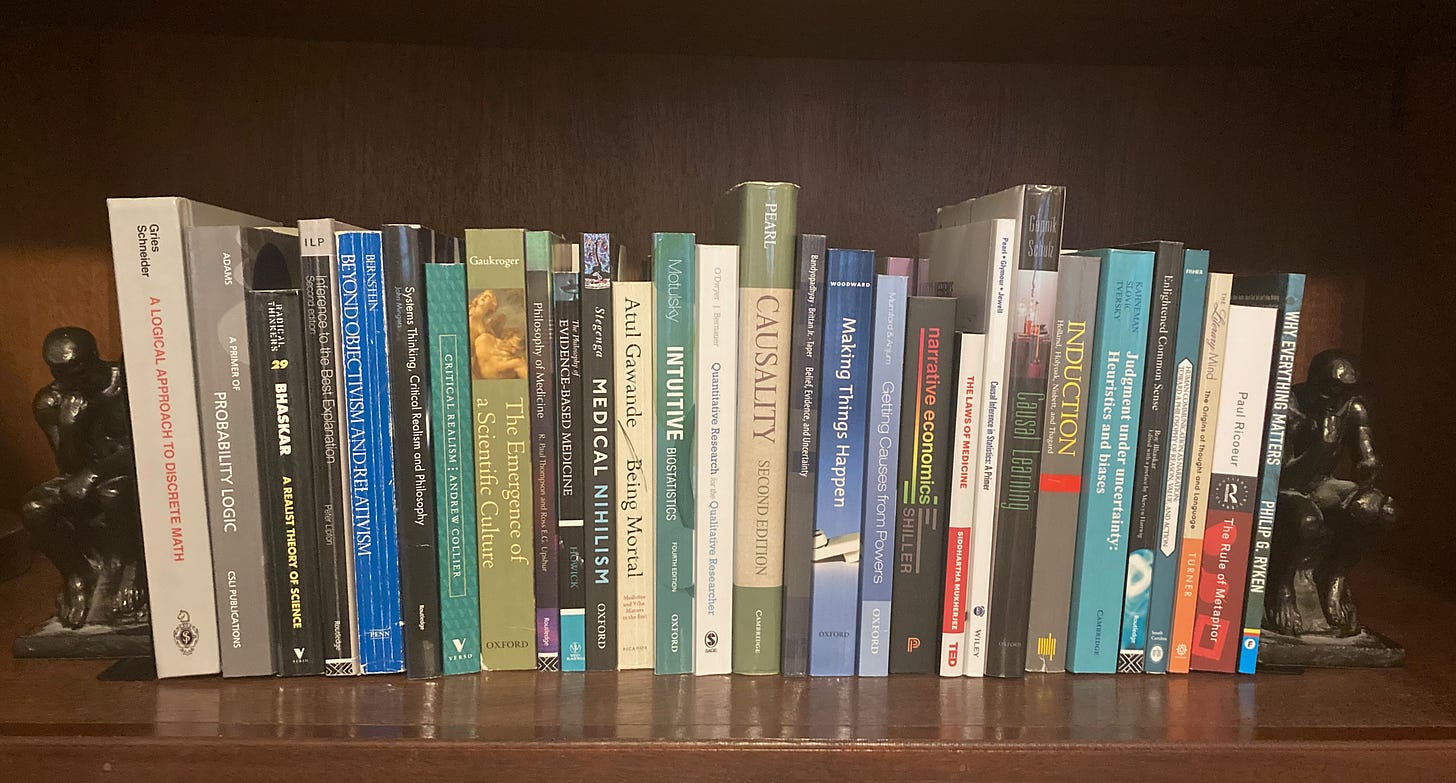I’m pleased to start offering a Clinical Inquiry Fellowship. This is something I’ve been developing in my head for many years now. The first step was founding the PSU DPT program and teaching (for a few years now) a full sequence of courses on this topic. Much of what I hold back from entry level students out of necessity is the true foundation of Clinical Inquiry as a process that - I think - holds promise for the profession of physical therapy.
I’ve set up a page with more information for anyone that may be interested (and please feel free to forward to anyone you think may be interested): Clinical Inquiry Fellowship Page
One of my goals in founding the PSU DPT prorgram was to allow me to continue to develop clinical inquiry as a process and approach. While this is not complete, I’ve come to realize it will never be complete. It’s a process. It has come quite far from when I started putting it together in 2014 after 10 years of post-doctoral reading and education. These past 10 years have been instrumental in helping me form a curriculum, reading plan and program for practicing physical therapists.
Who is this for?
Physical therapists who aim to elevate their practice, become leaders in reflective and evidence-informed care, and advocate for an inquisitive, patient-centered approach.
Since I’m offering this separate from a university, it is NOT a formal graduate program. If you’re seeking such a program of study, as is this is not for you. But the fellowship is flexible and individualized, so it can be incorporated into and be part of a doctoral program. The program would have to be fairly flexible methodologically. A “clinical inquiry” focused dissertation would have to be “mixed methods” - as in quantitative and qualitative.
If you want to be a scholar.
This is a program for physical therapists that want to be a scholar. One path to being a scholar is to pursue a PhD (ScD or EdD). This is an alternative, but not mutually exclusive, path. There are numerous benefits (and some cons) to being a scholar. Scholar’s tend to get academic jobs (at least that’s how it should be - the path should be scholar first, then academic job; out of necessity it’s often the other way around, academic job first, scholar because you need to become one as an academic… or at least that’s the hope). But not all scholars have academic jobs. In fact, I think we need more scholars in practice.
Please keep in mind, being a scholar is different than being an expert. There are many clinical experts (specialists) that are NOT scholars. And there are many scholars that are NOT experts (specialists). Being a scholar makes it easier to become an expert, and perhaps it works the other way as well. But they are separate. If you’re a scholar and not an expert, then you’re the closest thing the profession has to being a “specialized generalist”. A scholar knows how to apply their reasoning to any specific and specialized area of practice. A specialist that is not a scholar has difficulty abstracting from their particular set of specialized knowledge to apply to other areas.
What does it require?
Being a Clinical Inquiry Fellow requires an application (to me) including an interview (with me).
It requires setting up a reading and writing plan; and regular discussions including informal and formal presentations, and scholarly writings.
How long it takes depends on how quickly you move through the phases. There are two, one is foundational and the other is developmental. Foundations include three major pillars (philosophical, literary and quantitiative); developmental includes the application of the foundations to areas of practice.
There is an annual cost ($150) and how long it takes you impacts total cost. The cost defray’s my costs, and is reinvested into the project. In other words, it’s non-profit. If you’re going to combine the fellowship with a doctoral program, we’ll have to discuss how that would work.
If you want to learn more - message me here:




